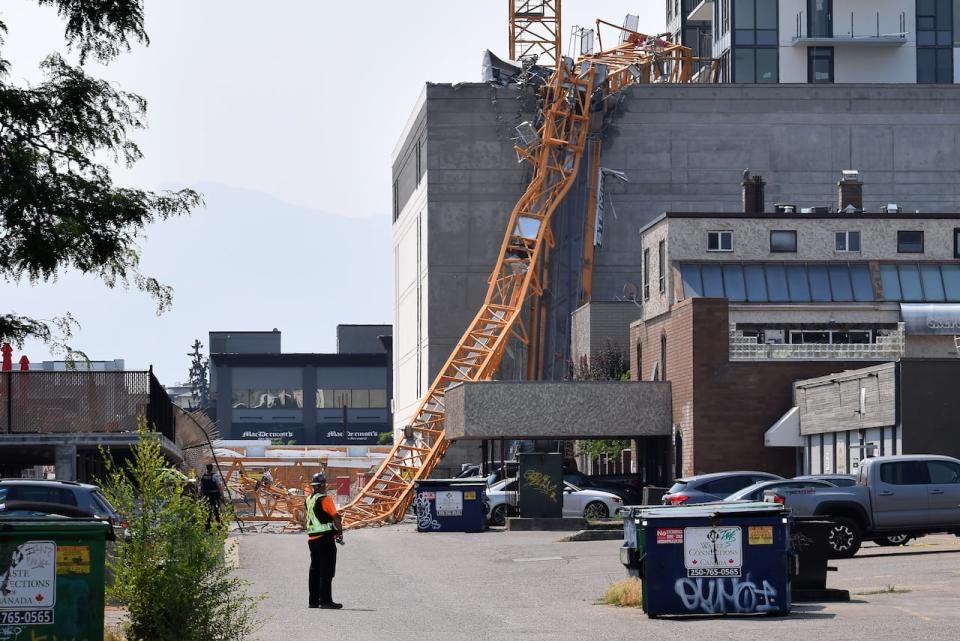Union calls for more certification, training for B.C. crane operators

The union representing thousands of construction employees in B.C. is calling for better training and certification for those who operate and set up tower cranes following two recent incidents at construction sites in Metro Vancouver.
An incident involving a crane closed Lougheed Highway in Burnaby for several hours on Jan. 26. Another incident saw a crane failure at a Surrey construction site on Tuesday.
While no one was injured in either incident, the International Union of Operating Engineers Local 115 says it is further proof that B.C.'s regulatory regime for crane operators is not fit for purpose.
Josh Towsley, the assistant business manager with the union, said the B.C. government should beef up certification and training for those working in a high-risk job.
"Luckily, neither of those incidents have resulted in significant injury," he told CBC News. "But we don't have to look too far back to a couple of incidents that did."
"Of course, one is the Kelowna tragedy in 2021," he added, referring to a crane collapse at a construction site that claimed five lives.
Towsley says WorkSafeBC, a provincial agency that promotes workplace safety, is finding it difficult to enforce existing provincial workplace safety regulations, which require a certification to operate a construction crane.
The union representative says many operators are choosing to avoid getting their required "A ticket" certification, instead periodically reapplying for their "B ticket" — which he calls the equivalent of a learner's licence for vehicles — to skirt regulations.
He added there is currently no licensing in place in B.C. for those who set up and disassemble cranes.
"I think that the government and industry needs to establish what a minimum level of training is required," Towsley said.
WorkSafeBC says crane safety initiatives underway
The union representative pointed to a 2021 pilot project by the City of Vancouver that could be implemented on a wider scale.
That pilot saw "staging areas" to assemble and disassemble cranes, and more lane closures around cranes to ensure the public safety in case of an accident.
"I think these [crane incidents] are stark reminders that municipalities that have this kind of work going on should be looking at how they keep the public safe," said Towsley.
In a statement, a WorkSafeBC spokesperson said the regulator conducted more than 1,200 crane inspections last year, and 568 orders were issued related to health and safety violations. One of those was a stop-work order, according to the agency, and another 64 were stop-use orders.
"In addition to the resources and regulations currently in place, there are a number of initiatives underway to further enhance crane safety," the spokesperson wrote.

A worker looks on as a police officer investigates a collapsed crane resting on the building it damaged in Kelowna, B.C., on July 12, 2021. Five people were killed in the collapse. Two recent crane incidents in Metro Vancouver have prompted calls for stronger training for crane operators. (Alistair Waters/The Canadian Press)
Those initiatives include an incoming requirement that makes operating a crane in B.C. a "compulsory trade", which means all crane operators will be mandated to undergo an apprenticeship before beginning their job.
That requirement was praised by Towsley, who added there is much work to be done to ensure those who assemble and disassemble cranes receive training as well.
"I don't think people want to be entering their condo, apartment building, and walking past the remembrance memorial of the people that died on that project," he said.
"I think that's just the reality of the risk that we face in our industry."


